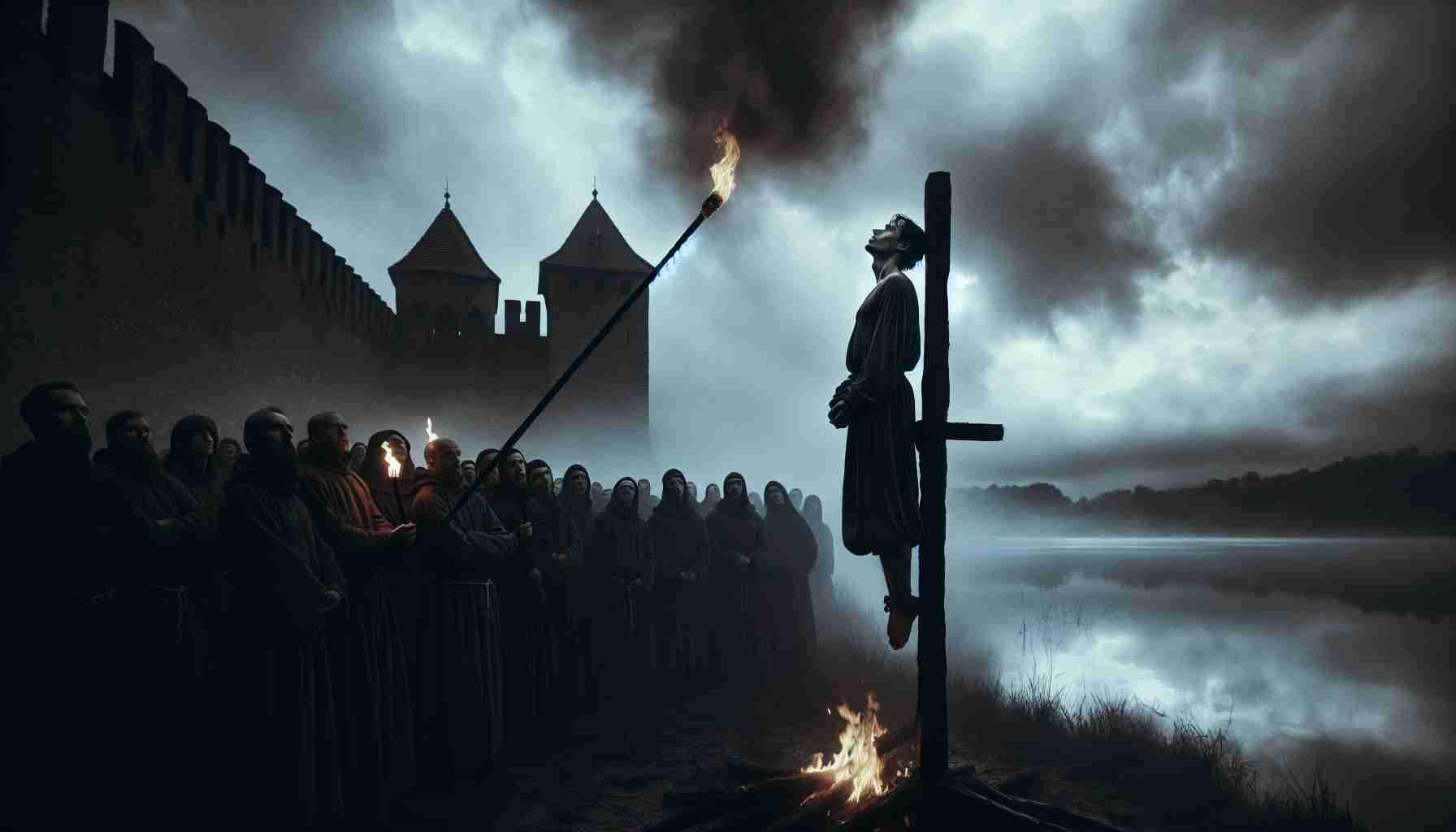

The bells of Constance tolled heavy in the July air, though the hour was neither prime nor vespers. The lake beyond the city gates shimmered under the pale sun, placid and silvery, unaware of the violence soon to rend the morning. Narrow alleys, hemmed by timber-framed inns and shuttered shops, bustled with murmurs and cloaks of foreign clergy. Cardinals, bishops, and inquisitors whispered beneath embroidered hoods. Yet all eyes turned, eventually, to the man enclosed by soldiers—thin, shackled, and strangely radiant.
Jan Hus walked toward the stake erected outside the city walls, his feet blistered from months in chains. His cassock, once black with dignity, hung loose on his shoulders. The Council of Constance had condemned him as a heretic. Though he had spoken no madness—only that the Word of God stood above the word of popes—still they wrote “obstinate, incorrigible” on the parchment decree of death. That he cited John 15:20 in reply—“If they persecuted Me, they will persecute you”—only sealed the flames.
Men lined the dirt road like tombstones—silent, frowning, stunned. They had heard his sermons in Bethlehem Chapel, watched him weep over Scripture, watched him defy corrupt indulgences proclaimed by Rome. They remembered when Prague echoed with Wycliffe’s truths, translated and preached, when Hus refused to recant because the truth was not his to deny. Now, the reformer who had once dared to tell kings and archbishops that salvation could not be sold, was barefoot before a woodpile.
A bishop offered him last rites. Hus declined.
"If I feared death, I would not have dared to speak," he said, steady and firm.
The executioner tied his hands behind the post. A cone-shaped heretic’s cap was placed on his head, painted with devils and flames. Beneath the grotesque art, Hus lifted his chin. A priest moved closer, perhaps to whisper comfort. Hus offered him a hymn instead.
“Iesu, fili Dei, miserere mei,” he began to sing—“Jesus, Son of God, have mercy on me.”
The crowd drew breath as the torches touched the timber.
Smoke rose black as crows from the pile. Fire hissed along the kindling, catching straw, licking robes, searing flesh. Hus sang yet, as long as breath remained. Some said his voice lifted above the roar, carrying the words of the Psalms. Others said it was silence that thundered—that everyone heard the fire refuse to consume his spirit.
In the cathedral behind him, where once the decrees of the Council rang in victory, monks later scraped soot from the stained glass in vain as ash clung stubbornly to saints’ faces. Legends claimed that a swan flew low over the lake that dusk. Hus—whose name means “goose” in Czech—had once told his judges, “You may cook this goose, but a hundred years from now, a swan will sing, whom you will not burn.” A century later, Martin Luther posted his theses in Wittenberg, calling Hus his forerunner.
But in the moment, in Constance, only the embers bore witness.
Three days later, the Council ordered the ashes of Jan Hus thrown into the Rhine so no relic could be made of him. No altar, no tombstone. They feared his bones might preach.
And preach they did—in the hills of Bohemia, where peasants rose with swords and Psalms, refusing to bend knee to Rome. The Hussite wars baptized the soil with courage. Forest chapels heard sermons in Czech, hymns passed in secret, Scripture sung from memory.
Centuries later, atop a hill in Prague, the statue of Jan Hus would stand defiant in stone, his eyes fixed east across the city he loved. His cloak flares like wind in eternal motion. Every July 6, a flame flickers in remembrance at his base.
And across time, the words of Christ—and of Hus—echo still.
“Truth conquers all.”